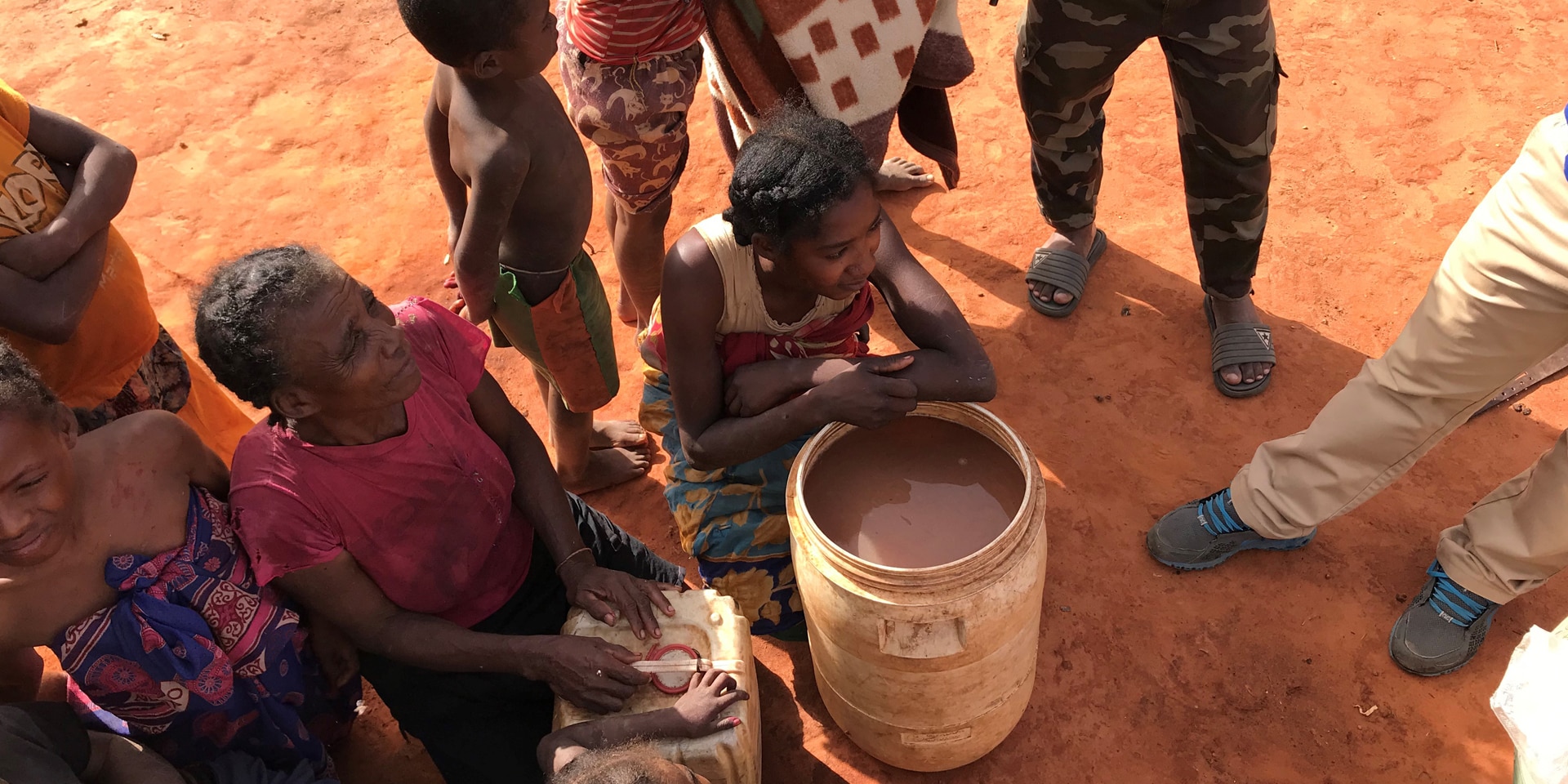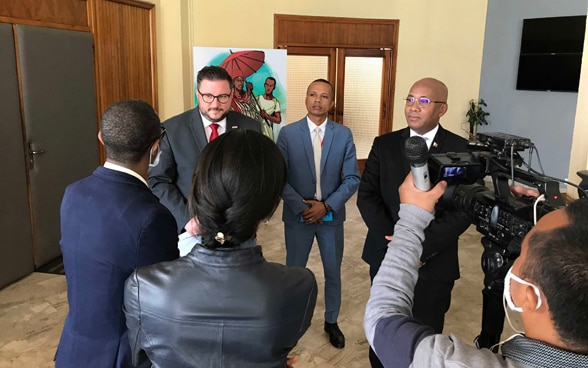CHF 1 million to alleviate the ongoing crisis
Swiss Humanitarian Aid is contributing CHF 1 million to help combat the impact of the devastating drought in southern Madagascar. It is responding to an appeal made by the Madagascan authorities. Half a million will go to the United Nations World Food Programme (WFP), while the remaining CHF 500,000 will be used to support a bilateral project with an aid organisation to improve water supply, sewerage and hygiene.

Prolonged drought in Madagascar: women and girls sometimes walk for eight hours to fetch water of poor quality. © FDFA
To alleviate the devastating situation in the drought-hit regions of Madagascar, Switzerland is responding to an appeal made by the Madagascan authorities and is providing CHF 1 million to assist people in need. Half of the amount will go to the United Nations World Food Programme, while Swiss Humanitarian Aid will use the other half a million to support a bilateral project with an aid organisation to improve water supply, sewerage and hygiene.
The Swiss Ambassador to Madagascar meets with local authorities

The press is also present at the meeting between Ambassador Chasper Sarott (left) and Madagascan Foreign Minister Djacoba Tehindrazanarivelo (right) © FDFA
On 11 February 2021, Chasper Sarott, Swiss Ambassador to Madagascar, Comoros and Seychelles, met Djacoba Tehindrazanarivelo, Malagasy Foreign Minister, in Antananarivo. The meeting followed Switzerland's announcement to support humanitarian activities in Madagascar to combat the effects of the severe drought.
"I met this week with three Ministers and the President of the Senate of Madagascar to officially confirm Switzerland's support. This act of solidarity is most welcome. It is an important contribution because it is the first from a bilateral partner responding to the international appeal for help. Switzerland's support contributes to the positive image of Switzerland in Madagascar", the Swiss diplomat expressed after the meeting.
Southern Madagascar has been experiencing catastrophic droughts almost annually since 2014 with either annually recurring droughts or severely affected harvests. In some cases the high coastal plateaus have not recorded any rainfall for several consecutive years. Although the rainy season began as soon as early autumn in places in 2019, the rainfall was very sporadic locally and too irregular to produce a good harvest. Groundwater reserves barely recovered and the local population, which is dependent on agriculture and livestock farming, was unable to build up the stocks required. There has been virtually no rainfall in the south of the country from December 2019 to the present day.
Madagascar is being severely affected by years of drought. It is also being hit by the COVID-19 pandemic, which is acting as a catalyst in the crisis situation. United Nations World Food Programme estimates indicate that it is the most severe drought in the past ten years. Food supplies are becoming increasingly scarce – particularly in the southern and south-western regions of the country. In order to survive, families in particularly hard-hit regions are eating tamarind mixed with clay as there is nothing else available to eat. Even the highly drought-resistant opuntia (prickly pear) cacti, which are also used as emergency rations, ripened prematurely in February 2020 causing the fruit to dry up.
The severe food insecurity will affect an estimated 1.35 million people between January and May 2021. This means around 35% of the total population in the regions affected in the south of the country will require humanitarian aid. Around 135,000 children under the age of five are suffering from acute or chronic malnutrition. As water supply is contaminated and comes from open holes in the ground, diarrhoea, environmental enteropathy, parasitic disease and anaemia are widespread. A study has revealed that three out of four children have left school to help their parents with the search for food.
Swiss Humanitarian Aid
Swiss Humanitarian Aid acts before, during and after conflicts, crises and natural disasters to serve the interests of people in need. It focuses on the reconstruction and rehabilitation of affected areas, disaster risk reduction, the protection of vulnerable people and emergency relief efforts. Swiss Humanitarian Aid is part of the Swiss Agency for Development and Cooperation (SDC) within the Federal Department of Foreign Affairs (FDFA).

